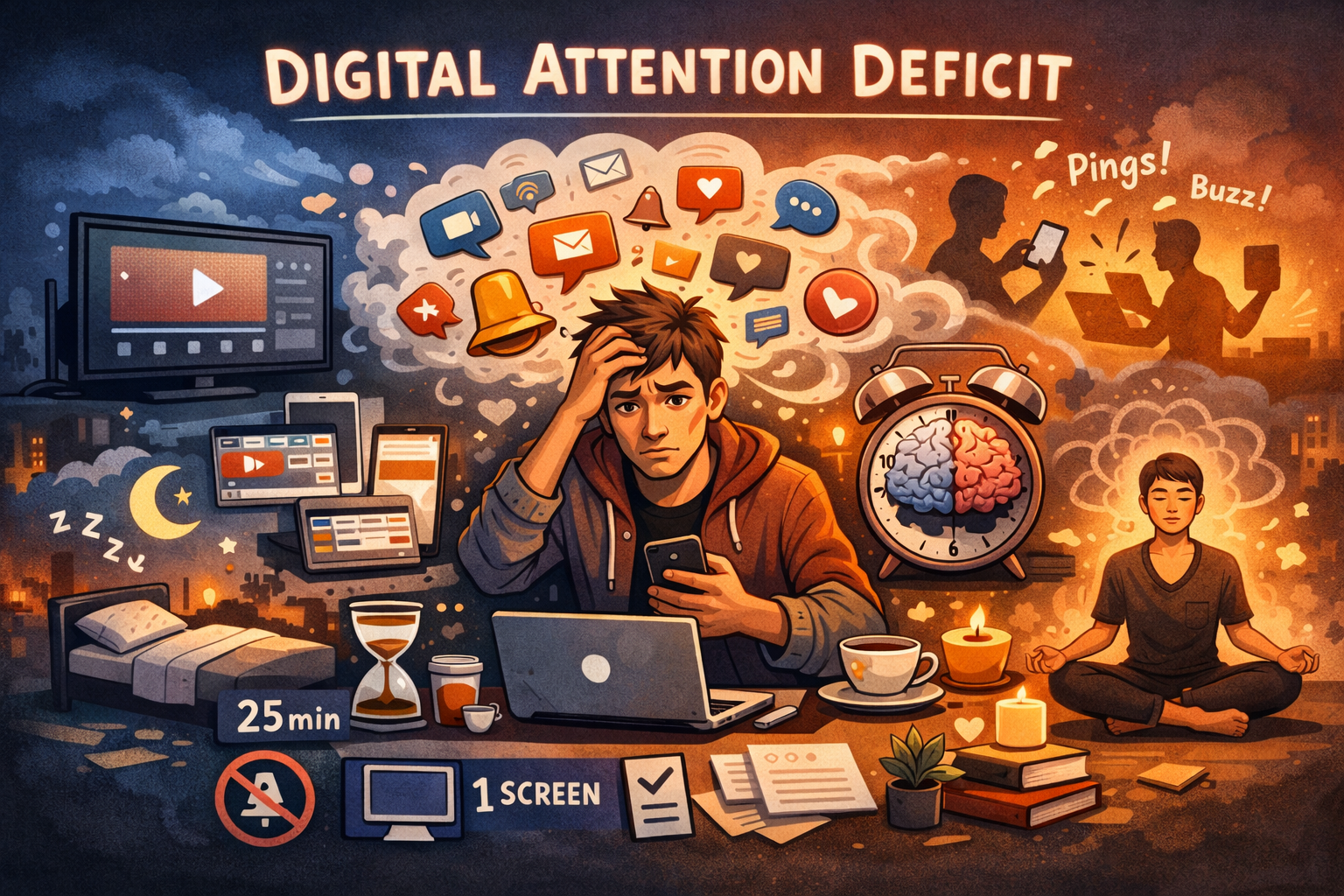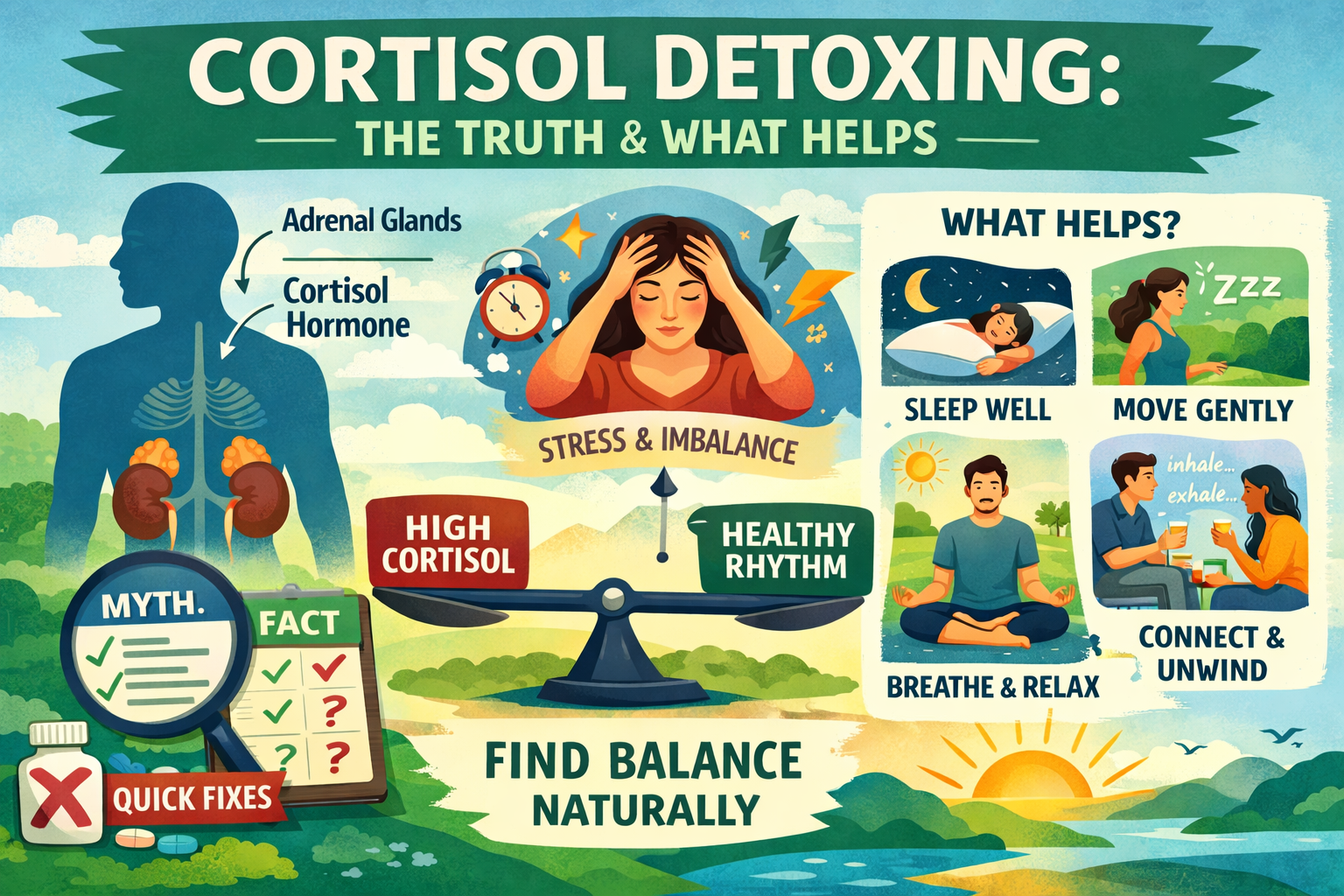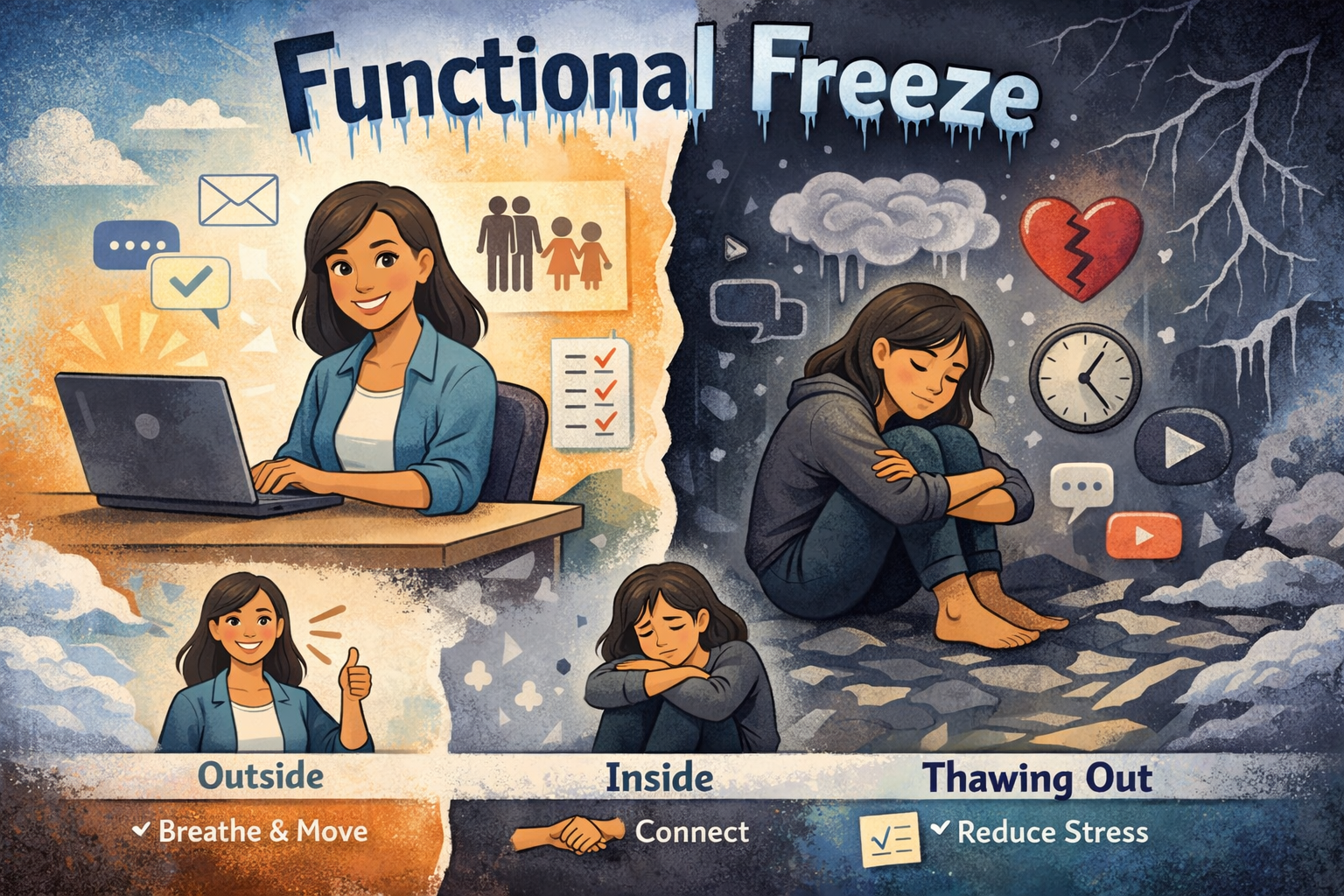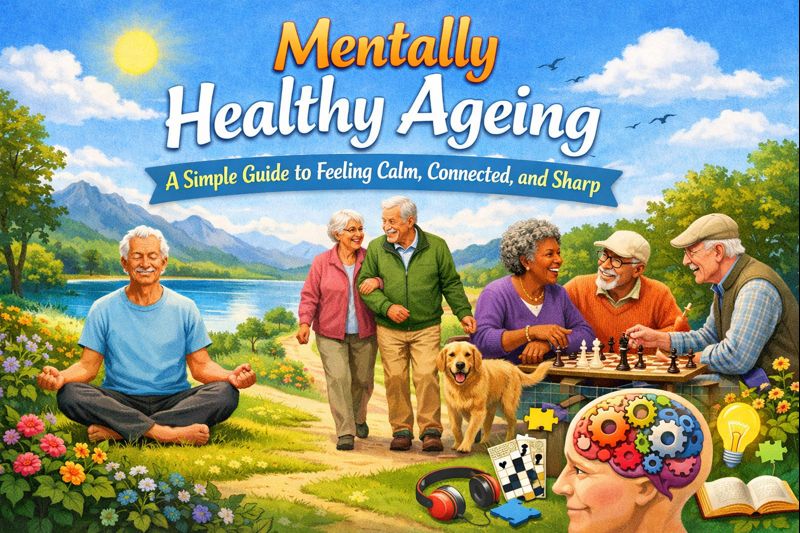“The only constant in life is change," according to the ancient Greek philosopher Heraclitus. Change is an inevitable part of existence. Likewise, our physical bodies keep on changing with age. Our brains, too, undergo changes throughout our lifetime. Though many of us fear cognitive decline with age, however, studies do indicate that brain functions can remain agile and sharp and, in fact, improve certain cognitive abilities at an advanced age.
The human brain functions similarly to muscles because the right kind of habits, plus mental exercises and healthy lifestyle choices, enable its strengthening. In this article, we are going to explore how we can protect and enhance our cognitive health later in life, backed by contemporary neuroscience, practical tips, and professional advice.
Understanding Cognitive Aging
The natural aging process causes the brain to undergo numerous functional changes that occur during. This leads to a gradual delay in information processing, memory loss, and a decreased ability to multitask. The aging process does not always lead to dementia or Alzheimer's disease.
According to Dr. Lisa Genova, a neuroscientist and author of Still Alice, Alzheimer’s disease basically differs from typical aging processes. Dr. Genova says, “Normal aging is not the same as Alzheimer’s. Cognitive decline is not inevitable.” The good news is neuroplasticity—the brain’s ability to adapt and reorganize itself. This process continues throughout our lifetime. Our brain can adapt and get changed even at a very advanced age. Meaning thereby, we all can start making positive changes regardless of our current age.
research reveals positive findings regarding brain health preservation together with improvement potential for senior citizens.
1. The FINGER Study (2023 Update)
The FINGER study has established that a combination of dietary changes, physical exercise, cognitive development training alongside vascular risk control effectively reduced mental decline among older adults. The success of the research led to the launch of a version of the FINGER study in 30 countries around the world.
2. U.S. POINTER Trial (2022–2025)
The large-scale ongoing US research initiative called U.S. POINTER seeks to verify FINGER trial results for different groups of the US population by using lifestyle-based brain health interventions. The early study outcomes indicate that slight improvements in lifestyle have substantial effects on both memory performance and processing speed abilities.
3. Sleep and Brain Waste Clearance
The Nature Neuroscience 2023 study proved that deep sleep acts as a process to eliminate Alzheimer’s disease-related toxins from the brain. The research demonstrates that high-quality sleep maintains vital brain functions in the long run.
The main practices that are needed to support and improve brain functions along with cognitive
improvement are listed below:
1. Stay mentally active and agile
Regular mental challenges help maintain high cognitive abilities. People should try:
-
Learning a new language, musical instrument or indoor game
-
Solving puzzles or playing chess, Sudoku like mental games
-
Reading books, articles and journals on new subject areas
According to Harvard Health Publishing, mental activities work on the brain just as physical exercises act on our physical body.
2. Eat for a healthy brain
The MIND diet, alongside the Mediterranean diet, which contains leafy greens, berries, olive oil, nuts, and fish, has proven very effective in lowering the risks of cognitive decline. The diet includes:
-
Omega-3 fatty acids (salmon, walnuts)
-
Antioxidants (blueberries, turmeric)
-
Whole grains and legumes
The diet must limit processed foods, red meat, and sugar intake as far as possible.
3. Exercise regularly
Regular exercise promotes brain blood flow, which creates new brain cells. People should aim for 30 minutes of moderate exercise (like brisk walking) at least 5 days a week. The exercise should also include balance and strength training.
An important research study published in Neurology (2022) demonstrated that elderly people who exercised regularly faced a 34% lower risk of cognitive impairment compared to inactive seniors.
4. Get quality sleep
Sleep functions as a process to help the brain strengthen memories and remove waste products. Most older adults need 7–8 hours per night.
Better sleep quality requires the following actions:
-
Avoid screens before bed
-
Maintain a consistent sleep schedule
-
Keep the bedroom cool and dark
5. Connect socially
Social isolation and disconnectedness cause cognitive functions to decline at a faster rate. In the present hyper connected digital age, people of all groups are increasingly getting disconnected.
Senior people must work hard to be socially connected with their friends and family members. They should visit community centres, volunteer clubs, welfare societies, nearby parks, and so on.
Social interaction stands as one of the twelve changeable factors that affect dementia, according to a 2023 Lancet review.
6. Manage mental stress
Long-term stress causes the brain to reduce the size of memory-processing regions along with emotional control areas. Older adults must try:
-
Mindfulness-based meditation, deep breathing exercises
-
Yoga or tai chi
-
Nature walks and journaling
Watch for early warning signs
To differentiate normal forgetfulness from genuine cognitive decline, we need to be aware of its warning signs.
During our normal aging process, it is quite normal to:
- Occasionally forget names or appointments
-
Need more time to learn new things
-
Have slower problem-solving
However, in advanced age, we should watch for the following warning signs:
-
Frequently getting lost in familiar places
-
Trouble following conversations
-
Forgetting important dates or recent events
-
Changes in behavior
A visit to a doctor or neurologist becomes necessary if these signs persist.
When to seek professional help
People should include cognitive health assessments during their regular medical appointments, starting at age 60. Doctors can recommend:
-
Cognitive screening tests
-
Blood tests to rule out deficiencies (e.g., B12, micronutrients, and minerals)
-
Brain imaging (if needed)
-
Cognitive therapy or rehabilitation for early-stage decline
Final Thoughts: The Brain Can Age Gracefully
The natural process of aging does not lead to unpreventable mental deterioration. Making suitable lifestyle decisions allows our brains to remain curious, capable, and creative throughout our older years.
Scientific research demonstrates that our lifestyle patterns determine the shape of our future cognitive abilities.
Dr. Miia Kivipelto, who leads the FINGER study, explains that adding life to your existing years matters more than extending your life duration, especially when it comes to mental vitality.
Your ageless brain gains long-term benefits from small, consistent efforts such as better eating habits, good sleep, new learning, and maintaining social connections. These small changes.
Are you looking for inner peace, deep relaxation or holistic solutions for mental health? Visit http://themindtherapy.in - your space for online counselling/therapy, free mental health tests, meditation, sound therapy etc.
Mind Therapy is India's trusted platform for mental health, mindfulness, and holistic healing. Explore expert-led programs, guided meditation, sound therapy and counselling at http://themindtherapy.in














